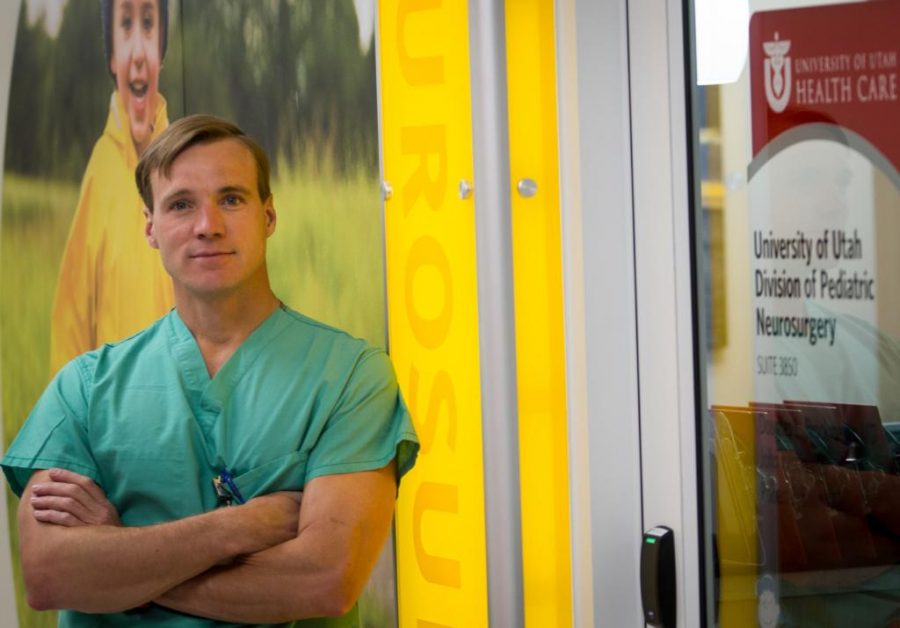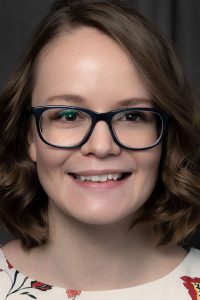On Sept. 11, 2001, University of Utah neurosurgeon and professor Mark Mahan was in New York City where he worked doing leverage buyouts at Deutsche Bank. The bank had just moved to a new building on Wall Street — a 15 minute walk from the comapny’s old location on Liberty Street — right next to the World Trade Center. After hearing that the Twin Towers had come under attack, Mahan went outside and saw people caked in white dust.
After being struck by two separate airplanes as part of a terrorist attack, both towers fell. The old Deutsche Bank building, among others, was seriously damaged and later condemned.
More than 2,700 people died in the World Trade Center towers that day.
Mahan graduated from Princeton University with a degree in molecular biology in 1998, and he went to work in finance. He was attracted to the sector because “it’s an intellectual, high-earning, fast-paced job, and the opportunities to do anything you want within it are so attractive.” Coming out of an Ivy League school, he had a lot of student loans and “the salary meant a lot.”
When the Deutsche Bank was across the street, he would sometimes visit the World Trade Center for lunch. The bank would occasionally have meetings there.
By all accounts, at the time, the financial sector was booming. The twin towers were the tallest in the world when their construction was completed. They were tall enough to sway in the wind. The entire World Trade Center complex of seven buildings was so large it had its own zip code.
The tenants of the towers were primarily financial companies. According to an article published by National Geographic two days after the terrorist attacks that brought the towers down, “The World Trade Center represented the elite and the powerful — its tenants were household names. It was the financial hub of the country, and even, some would argue, the world.”
A Change of Pace
After witnessing that day’s events, Mahan eventually came to the decision that he needed to switch careers and become a doctor.
“Seeing the towers go down and feeling both lucky but unable to help was sort of a double-whammy, if you consider it,” Mahan said. “In one respect you’re happy, but at the same time you’re also feeling quite discouraged at your inability to really do anything.”
While contemplating whether to leave the finance sector, he looked at his wife, a teacher, and saw the joy she had in her life. He said it showed him “there are ways of doing good and really feeling positive about your daily occupation.”
He gave up his lucrative and promising financial career and went back to school. Mahan graduated from medical school at Columbia University and was drawn to neurosurgery. He completed fellowships at the Mayo Clinic and the University of California, San Diego, where Mahan focused on issues involving nerves in the limbs. Mahan was 25 years old when the towers fell. He finished his medical training in 2013.
The Way Forward
Today, his main focus as a neurosurgeon is on neurologic reconstruction. Many of his patients are people who have experienced severe injuries and want to regain function in their limbs. These could be patients who have experienced a stroke, nerve injury or spinal cord injury whose use of their arms or legs has become limited. His job is to find ways to help them reestablish control. He calls it a “great joy.”
Mahan’s interest in a fast-paced intellectual job didn’t just go away. He said he chose neurosurgery “mainly because there’s a lot of novel surgery that’s going on. … I like doing new things. The opportunity to do things in a highly academic center that are new and are pushing the frontier of surgery is just fantastic.”
“Do you have a career and a passion that are in synchrony?” Mahan asked. “There is no work. There you are truly happy to give all of your effort — your complete effort, your complete attention and soul over to it.”
When he worked in finance, Mahan did not feel content with his life.
“I don’t know if I really had much,” Mahan said. “I mean, I was proud of the education that I’d gone through and my efforts there, and I was proud of where I had gone. But I really didn’t have a direction at that point. It was all about making money or finding the next job that would be more successful. I can tell you now it’s much different. Feeling contented, feeling very at comfort and pleased with what I’m doing. There’s a lot more joy.”
For some who experienced the events of 9/11, firsthand, it inspired lasting trauma. The same is true to a lesser extent for most Americans who are old enough to remember the attacks.
“I don’t know if I can provide recommendations for others,” Mahan said in regard to how to let that negative experience motivate something positive. “In some of the most challenging episodes of one’s life you have either the unique opportunity to, or are forced to, reconsider everything about your life. And when you choose to do that, when you choose to look in and think about the hard lessons of life, you’ll often find inspiration to pursue what is more meaningful.”
@EliseAbril



















Barbara Van Asdlan • May 26, 2021 at 1:54 pm
I just finished the article written by Elise Vandersteen Bailey published on 17 September 2017
in The Daily Utah Chronicle. It was well written and
I enjoyed it immensely.
It involved Mr. Mark Mahan whose career after college was in New York at Deutsche Bank.
He witnessed the September 11, 2001 attack on the Twin Towers and decided to leave banking to go to Medical School. He decided he wanted to help those who needed their health restored.
Mark Mahan,MD became a Neurosurgeon and
currently works at the University of Utah.
When you enjoy your career you look forward to get up each morning and doing what you love!